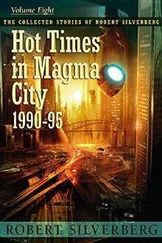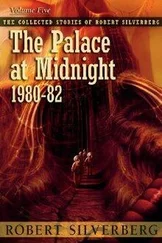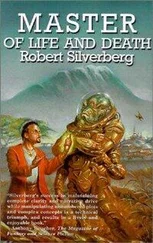Robert Silverberg - Death Do Us Part
Здесь есть возможность читать онлайн «Robert Silverberg - Death Do Us Part» весь текст электронной книги совершенно бесплатно (целиком полную версию без сокращений). В некоторых случаях можно слушать аудио, скачать через торрент в формате fb2 и присутствует краткое содержание. Год выпуска: 2014, ISBN: 2014, Издательство: Subterranean Press, Жанр: Фантастика и фэнтези, на английском языке. Описание произведения, (предисловие) а так же отзывы посетителей доступны на портале библиотеки ЛибКат.
- Название:Death Do Us Part
- Автор:
- Издательство:Subterranean Press
- Жанр:
- Год:2014
- ISBN:978-1-59606-705-9
- Рейтинг книги:5 / 5. Голосов: 1
-
Избранное:Добавить в избранное
- Отзывы:
-
Ваша оценка:
- 100
- 1
- 2
- 3
- 4
- 5
Death Do Us Part: краткое содержание, описание и аннотация
Предлагаем к чтению аннотацию, описание, краткое содержание или предисловие (зависит от того, что написал сам автор книги «Death Do Us Part»). Если вы не нашли необходимую информацию о книге — напишите в комментариях, мы постараемся отыскать её.
Death Do Us Part — читать онлайн бесплатно полную книгу (весь текст) целиком
Ниже представлен текст книги, разбитый по страницам. Система сохранения места последней прочитанной страницы, позволяет с удобством читать онлайн бесплатно книгу «Death Do Us Part», без необходимости каждый раз заново искать на чём Вы остановились. Поставьте закладку, и сможете в любой момент перейти на страницу, на которой закончили чтение.
Интервал:
Закладка:
He laughs. “It gets pretty jumbled, you know. The longer you live, the more muddled-up your mind becomes.”
“Oh, I don’t believe that at all! I think you remember every bit of it. Tell me about your father and mother.”
“My father and my mother—” He pronounces the words musingly, as though they are newly minted concepts for him. “My father—he was tall, even taller than I am—a mathematician, he was, or maybe a composer, something abstruse like that—”
“And his eyes? What kind of eyes did he have?”
“His eyes—I don’t know, his eyes were unusual, but I can’t tell you how—an odd color, or very penetrating, maybe—there was something about his eyes—” His voice trails off.
“And your mother?”
“My mother. Yes.” He is staring into the past and it seems as if he sees nothing but haze and smoke there. “My mother. I just don’t know what to tell you. She’s dead, you realize. A long time, now. Hundreds of years. They both died before Process. It was all such a long time ago, Marilisa.”
His discomfort is only too apparent.
“All right,” she says. “We don’t have to talk about them. But tell me about the clothing, at least. What you wore when you were a young man. Whether people liked darker colors then. Or the food, the favorite dishes. Anything. The shape of ordinary things. How they were different.”
Obligingly he tries to bring the distant past to life for her. Images come through, though, however blurry, however indistinct. The strangeness, the alien textures of the long ago. Whoever said the past is another country was right; and Leo is a native of that country. He speaks of obsolete vehicles, styles, ideas, flavors. She works hard at comprehending his words, she eagerly snatches concrete meanings from his clusters of hazy impressions. Somehow the past seems as important to her as the future, or even more so. The past is where Leo has lived so very much of his life. His gigantic past stretches before her like an endless pathless plain. She needs to learn her way across it; she needs to find her bearings, the points of her compass, or she will be lost.
It is time for Leo to undergo Process once more. He goes every five years and remains at the clinic for eleven days. She would like to accompany him, but guests are not allowed, not even spouses. The procedures are difficult and delicate. The patients are in a vulnerable state while undergoing treatment.
So off he goes without her to be made young again. Elegant homeostatic techniques of automatic bioenergetic correction will extend his exemption from sagging flesh and spreading waistline and blurry eyesight and graying hair and hardening arteries for another term.
Marilisa has no idea what Process is actually like. She imagines him sitting patiently upright day after day in some bizarre womb-like tank, his body entirely covered in a thick mass of some sort of warm, quivering purplish gel, only his head protruding, while the age-poisons are extracted from him by an elaborate array of intricate pipettes and tubes, and the glorious fluids of new youthfulness are pumped into him. But of course she is only imagining. For all she knows, the whole thing is done with a single injection, like the Prep that she undergoes every couple of years to keep her in good trim until she is old enough for Process.
While Leo is away, his son Fyodor pays her an uninvited visit. Fyodor is the child of Miaule, the fifth wife. The marriage to Miaule was Leo’s briefest one, only eight years. Marilisa has never asked why. She knows nothing substantial about Leo’s previous marriages and prefers to keep it that way.
“Your father’s not here,” she says immediately, when she finds Fyodor’s flitter docked to the harbor of their sky-house.
“I’m not here to visit him. I’m here to see you.” He is a compact, blockily built man with a low center of gravity, nothing at all in appearance like his rangy father. His sly sidewise smile is insinuating, possessive, maddening. “We don’t know each other as well as we should, Marilisa. You’re my stepmother, after all.”
“What does that have to do with anything? You have half a dozen stepmothers.” Was that true? Could the wives before Miaule be regarded as his stepmothers, strictly speaking?
“You’re the newest one. The most mysterious one.”
“There’s nothing mysterious about me at all. I’m terribly uninteresting.”
“Not to my father, apparently.” A vicious sparkle enters Fyodor’s eyes. “Are you and he going to have children?”
The suggestion startles her. She and Leo have never talked about that; she has never so much as given it a thought.
Angrily she says, “I don’t think that that’s any of your—”
“He’ll want to. He always does.”
“Then we will. Twenty years from now, maybe. Or fifty. Whenever it seems appropriate. Right now we’re quite content just with each other.” He has found an entirely new level on which to unsettle her, and Marilisa is infuriated even more with him for that. She turns away from him. “If you’ll excuse me, Fyodor, I have things to—”
“Wait.” His hand darts out, encircles her wrist, seizes it a little too tightly, then relaxes to a gentler, almost affectionate grip. “You shouldn’t be alone at a time like this. Come stay with me for a few days while he’s at the clinic.”
She glowers at him. “Don’t be absurd.”
“I’m simply being hospitable, Mother.”
“I’m sure he’d be very amused to hear that.”
“He’s always found what I do highly amusing. Come. Pack your things and let’s go. Don’t you think you owe yourself a little amusement too?”
Not bothering to conceal her anger and loathing, Marilisa says, “What exactly are you up to, Fyodor? Are you looking for vengeance? Trying to get even with him for something?”
“Vengeance? Vengeance?” Fyodor seems genuinely puzzled. “Why would I want that? I mean, after all, what is he to me?”
“Your father, for one thing.”
“Well, yes. I’ll grant you that much. But what of it? All of that happened such a long time ago.” He laughs. He sounds almost jolly. “You’re such an old-fashioned kind of girl, Marilisa!”
A couple of hours after she succeeds in getting rid of Fyodor, she has another unexpected and unwanted visitor: Katrin. At least Katrin has the grace to call while she is still over Nevada to say that she would like to drop in. Marilisa is afraid to refuse. She knows that Leo wants some sort of relationship to develop between them. Quite likely he has instigated this very visit. If she turns Katrin away, Leo will find out, and he will be hurt. The last thing Marilisa would want to do is to hurt Leo.
It is impossible for her to get used to Katrin’s beauty: that sublime agelessness, which looks so unreal precisely because it is real. She genuinely seems to be only 30, golden-haired and shining in the first dewy bloom of youth. Katrin was Leo’s wife for forty years. Estil and Liss, the two children they had together, are almost 200 years old. The immensity of Katrin’s history with Leo looms over her like some great monolithic slab.
“I talked to Leo this morning at the clinic,” Katrin announces. “He’s doing very well.”
“You talked to him? But I thought that nobody was allowed—”
“Oh, my dear, I’ve taken forty turns through that place! I know everybody there only too well. When I call, they put me right through. Leo sends his warmest love.”
“Thank you.”
“He loves you terribly, you know. Perhaps more than is really good for him. You’re the great love of his life, Marilisa.”
Marilisa feels a surge of irritation, and allows it to reach the surface. “Oh, Katrin, be serious with me! How could I ever believe something like that?” And what does she mean, Perhaps more than is really good for him ?
Читать дальшеИнтервал:
Закладка:
Похожие книги на «Death Do Us Part»
Представляем Вашему вниманию похожие книги на «Death Do Us Part» списком для выбора. Мы отобрали схожую по названию и смыслу литературу в надежде предоставить читателям больше вариантов отыскать новые, интересные, ещё непрочитанные произведения.
Обсуждение, отзывы о книге «Death Do Us Part» и просто собственные мнения читателей. Оставьте ваши комментарии, напишите, что Вы думаете о произведении, его смысле или главных героях. Укажите что конкретно понравилось, а что нет, и почему Вы так считаете.












